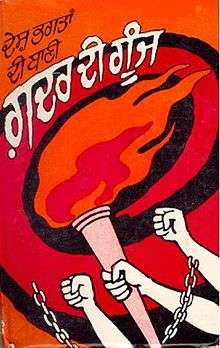Abhinash Bhattacharya
Abhinash Chandra Bhattacharyya was an important leader in Revolutionary movement for Indian independence or a radical Indian nationalist noted for his role in the Indo-German Conspiracy of World War I. Born in "Chunta" in the district of Tripura India, Bhattacharya in his youth became involved with the works of the Anushilan Samiti.
In 1910, Abhinash Bhattacharya proceeded to Germany to qualify as a chemist at Martin Luther University of Halle-Wittenberg. He obtained his PhD in Chemistry from there.
During his stay in the country, Bhattacharya again became involved in the Indian nationalist movement there, reviving old acquaintances from his Anushilan days. He was at this time close to Virendranath Chattopadhyaya and Harish Chandra and, through his acquaintance with the Prussian Minister of Interior, Bhattacharya became one of the Key founding member of the Berlin Committee, which during the war came to be involved in a number of failed plans for nationalist revolution within India and mutiny in the Indian Army.
He returned to India in 1914 and founded a chemical factory known as "Techno Chemical Laboratory and Works Limited" in Calcutta. He is known as "Pioneer in Industrial Chemistry".During his lifetime he was connected with many social works and contributed many articles on freedom movement in the leading newspapers of Calcutta. Bhattacharyya also authored two books on freedom movements abroad.
Bhattacharya died in Rishra in Hoogly district in West Bengal in 1962.
References
- Bose, A, Indian revolutionaries abroad, 1905–1922, in the background of international developments. Published by Bharati Bhawan, 1971. LCCN: 72906489
- Yadav, B.D (1992), M.P.T. Acharya, Reminiscences of an Indian Revolutionary, New Delhi:p85. Anmol Publications Pvt ltd, ISBN 81-7041-470-9.
- Trivedi, R.K (1994),The critical triangle: India, Britain, and Turkey, 1908-1924.p 224. Publication Scheme, 1994 by Raj Kumar Trivedi.


